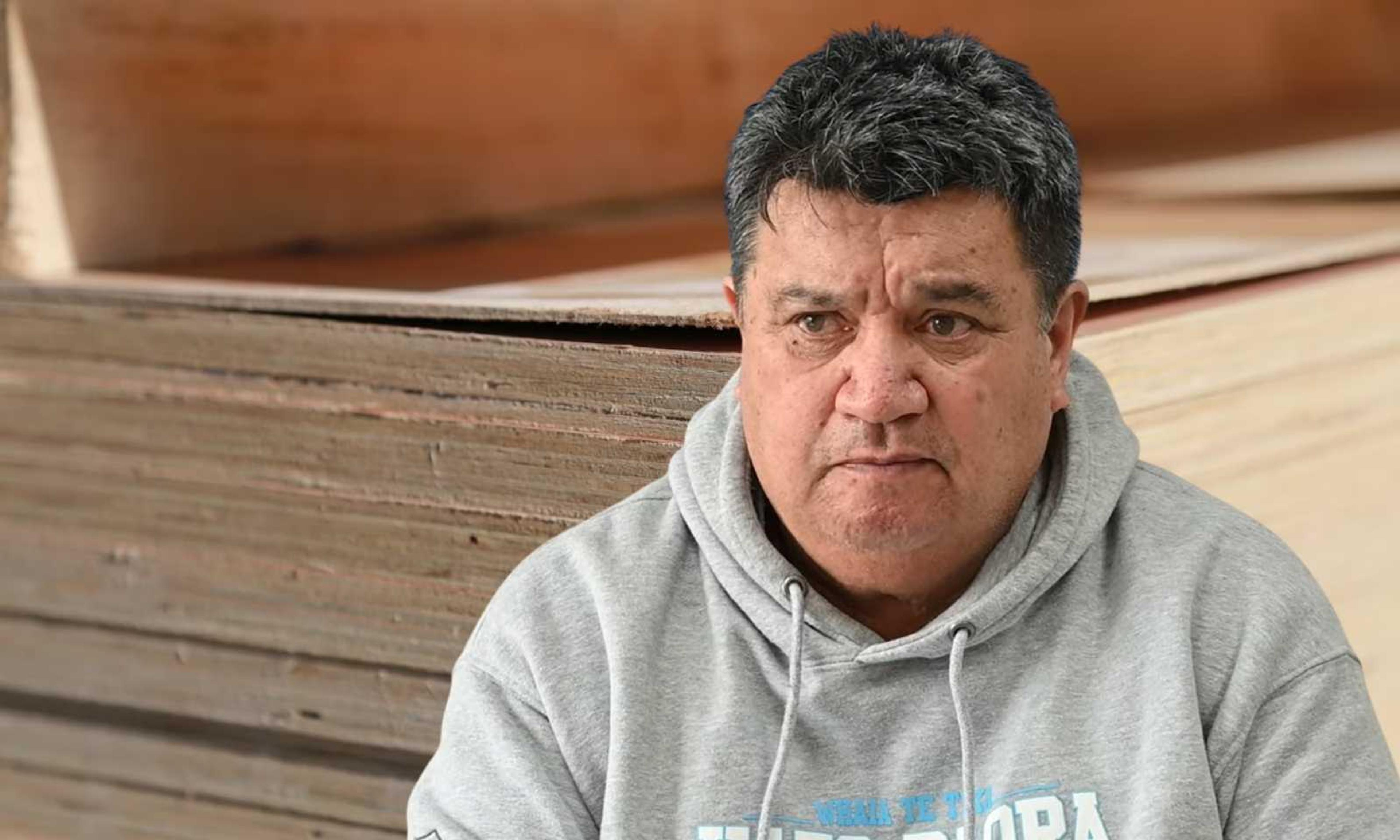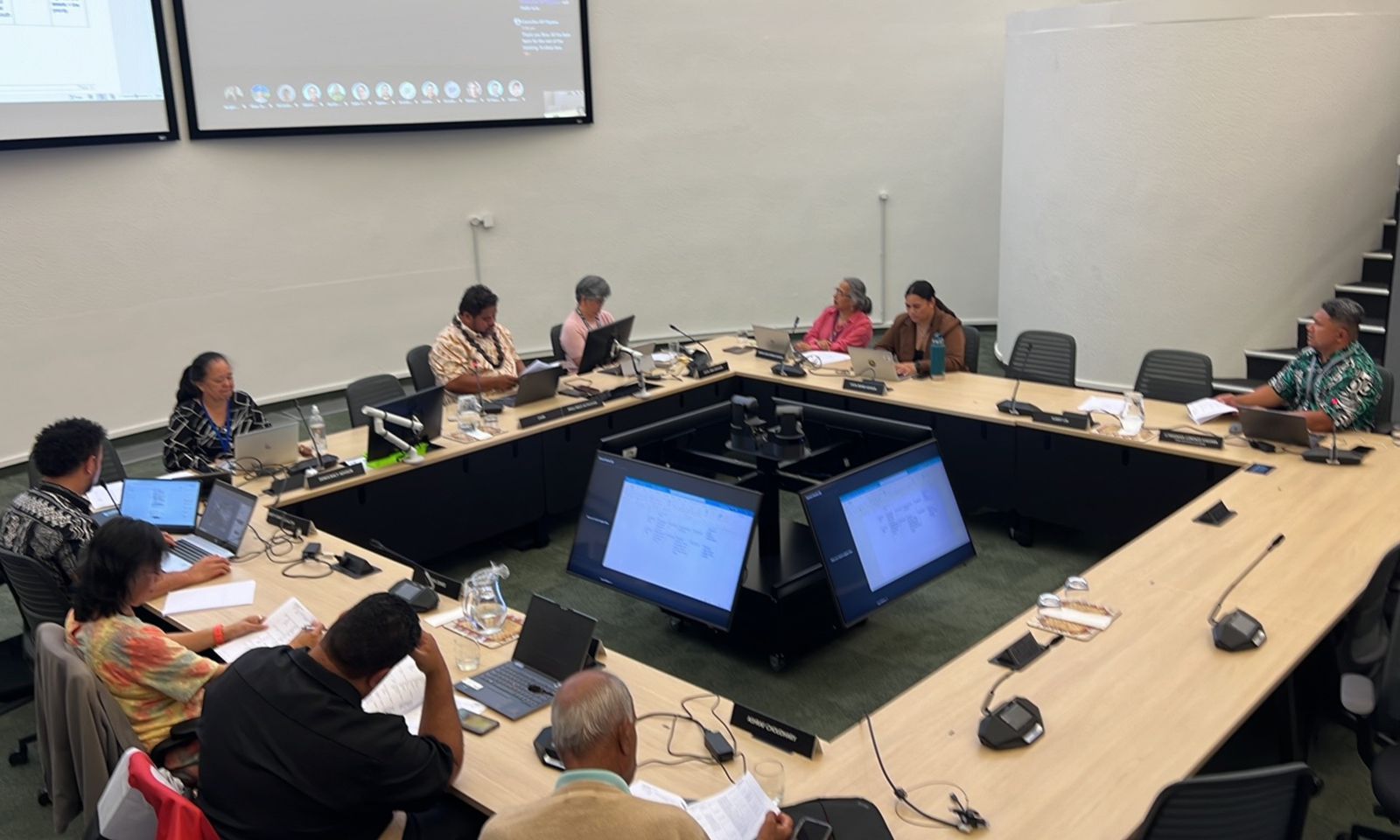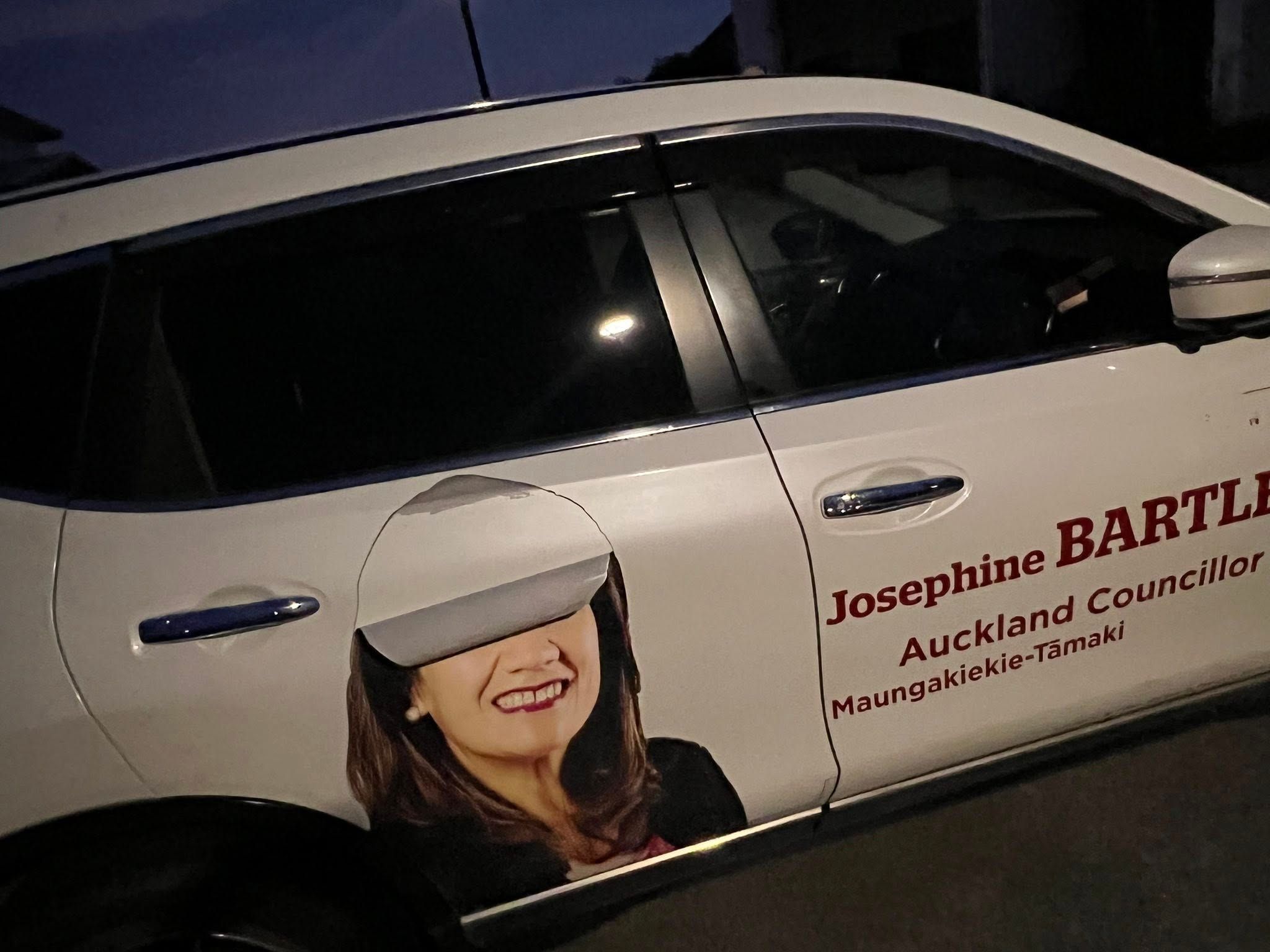

Serving the community increasingly comes with risks, as local leaders warn safety concerns could deter Pacific and South Auckland voices from entering politics.
Photo/RNZ Sela Jane Hopgood
Ōtara-Papatoetoe local board chair speaks out on safety threats
Security risks are a growing concern for elected officials in Aotearoa, who warns they could discourage Pacific and South Auckland voices from politics.


Pacific families among Tokoroa community hit hard by mill closure


‘We can do heaps’: Tanner Vili encourages Pacific youth to explore new opportunities

New Zealand tightens international adoptions, Sāmoa most affected

Pacific families among Tokoroa community hit hard by mill closure


‘We can do heaps’: Tanner Vili encourages Pacific youth to explore new opportunities
Ōtara-Papatoetoe Local Board chair Apulu Reece Autagavaia says safety threats are increasingly affecting anyone willing to put their name forward for politics.
His comments come amid reports that election hoardings of three Auckland female candidates have been vandalised and graffitied with offensive and racist words.
“Unfortunately, the times nowadays is that there seems to be an issue of safety for elected members or anyone that puts their name up, and that should be a real reason or consideration for those standing. Unfortunately, it might be a deterrent for some people.”
Apulu says he himself has experienced concerns about safety and has had to take precautions.
“You want to be there, accessible to the community, talking to everyone and engaging with everyone.
“But I couldn’t live with myself if a security issue happened because of me and it impacted someone else.
A growing challenge for local democracy
Similar issues have been raised by other elected officials in Auckland, including Councillor Josephine Bartley, who has spoken about removing her face from her car for safety reasons and recalling an incident where she stepped back from chairing a committee meeting to avoid risks.
Bartley says she enjoyed being recognised in the community when people saw her car.

The Ōtara-Papatoetoe Local Board during a public meeting. Photo/PMN News Mary Afemata
“When I turn up to community events, people are like, oh cool, yeah, I’m here. And now I’m just… yeah, there’s nothing on my car now. But I have to do it.”
Elected members are supported by a new home security system allowance, introduced by the Remuneration Authority for the 2025/26 term.
Councils can choose to cover up to $4500 for home security installation, including monitoring, call‑outs, and repairs, as well as $1000 a year for maintenance, if included in their expense policies.
Bartley remembers one incident where a member of the public unexpectedly entered her home late one night.
“That was raised for me when that guy turned up to my place and just rocked into my lounge. He just walked straight in, because he’s a ratepayer. You work for me, you know. Which I get, but not in my home.”

Councillor Josephine Bartley removed her campaign sticker from her car after safety concerns. Photo/Josephine Bartley Facebook
When asked about her decision to step back from chairing a meeting, Bartely says, “There’s too many factors where something bad could happen. So that’s why I stepped away from it.”
Data confirms rising abuse
Apulu and Bartley’s experiences align with wider research findings. A 2022 survey by Local Government New Zealand revealed that 50 per cent of elected members had faced racism or gender discrimination, while 43 per cent reported experiencing harassment, prejudice, or threatening behaviour in their roles.
More recent polling showed that 53 per cent believed the incidence of abuse had worsened in the past year, with 65 per cent experiencing online abuse, 39 per cent at community events, and 33 per cent during everyday activities like shopping or school drop-offs.
At the national level, a study by the University of Otago found 98 per cent of MPs reported experiencing harassment, with 40 per cent receiving threats of physical violence, 14 per cent facing threats of sexual violence, and 19 per cent receiving threats targeting their families.

LGNZ’s 2022 survey found half of elected members faced discrimination, and over 40 per cent experienced harassment or threats. Photo/LGNZ
The cost of service
Apulu says the pressures endured by elected officials reflect broader frustrations and hardships within the community.
“Some of this frustration from our community is at life in general, at the system, at people in positions of power.
“They’ve already been burnt and traumatised by the state and therefore have a trust issue with anything to do with it.
“So there’s that element as well, our community are suffering and trying to survive, and some resort to reaching out by causing threats to elected members.”
For him, the safety risks are part of the reality of serving the community, but he remains deeply concerned about the potential consequences for others.
“For me, I want to do the best job, and if I get hurt, that’s me, that’s part of me doing the job. But when it starts to impact other people, when there’s a risk of harm to those around you, then you actually have to step back and take that into consideration too.”
- LDR is local body journalism co-funded by RNZ and NZ On Air.
